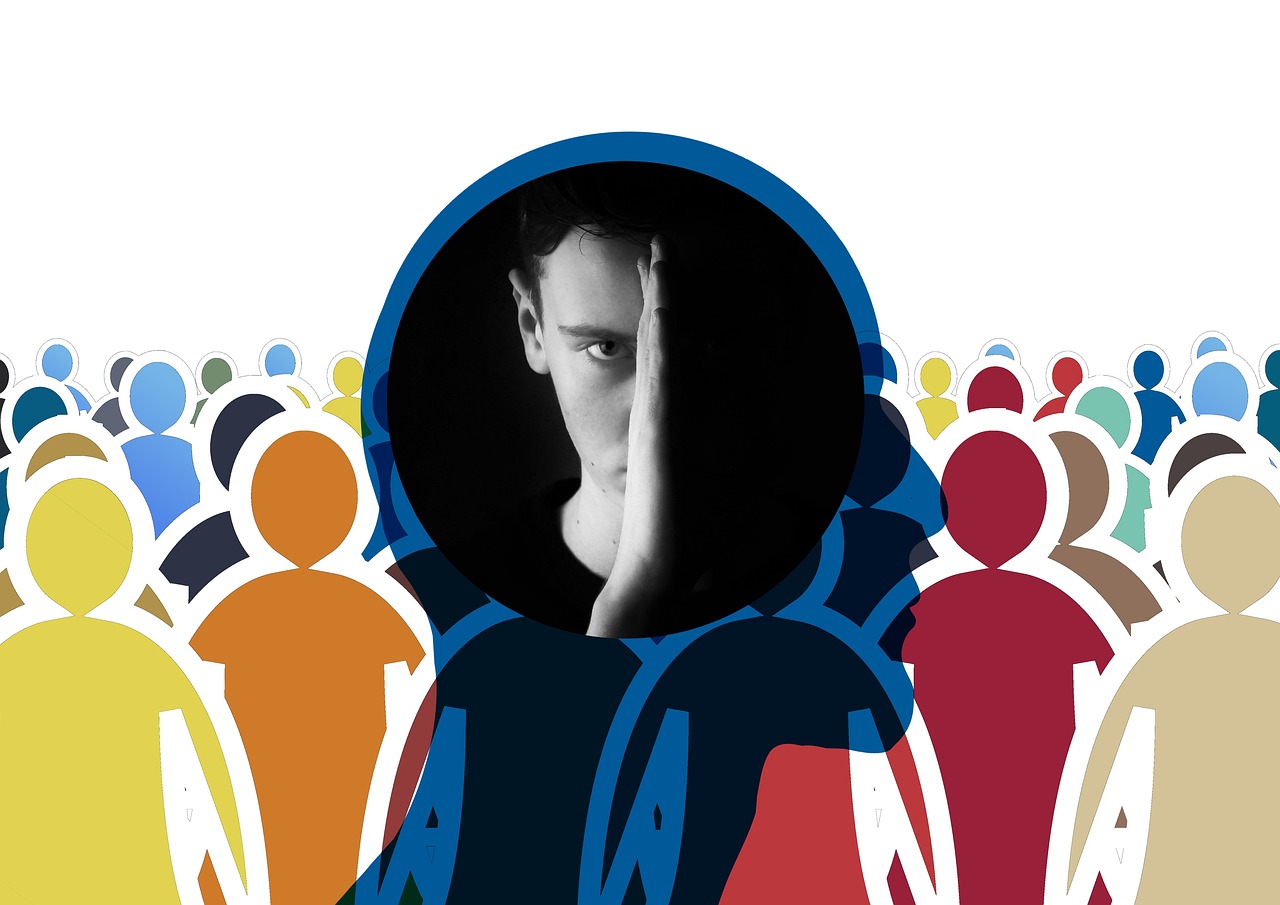Social Anxiety Disorder (SAD) is a chronic mental health condition characterized by extreme fear in social situations. SAD sufferers often worry intensely about being judged or scrutinized by others.
It’s a prevalent disorder, affecting millions globally, whereby individuals feel overwhelming anxiety and self-consciousness in everyday social interactions. Symptoms can include intense nervousness, a racing heart, and avoidance of activities where one might be the center of attention. The condition can significantly hinder personal and professional relationships, leading to a reduced quality of life.
Early diagnosis and treatment are essential for managing symptoms and improving social functioning. Therapy, medication, and self-help strategies play pivotal roles in the journey to overcoming Social Anxiety Disorder, enabling individuals to lead more fulfilling lives.

Credit: www.helpguide.org
Understanding Social Anxiety Disorder
Social Anxiety Disorder, often a silent battle, affects many. It’s more than just shyness. It’s intense fear in social situations. Those with this disorder dread everyday interactions. This fear can affect work, school, and other activities. It may prevent them from making friends or dating. It can even have them avoid places where people gather.
What Is Social Anxiety Disorder?
Imagine feeling scared every time you talk to someone. Social Anxiety Disorder, or social phobia, is an intense fear of social situations. People with this disorder fear being watched, judged, or embarrassed. They worry they’ll act in ways that will humiliate them. These feelings can be overwhelming and hard to control.
This disorder is not rare. It is a common type of anxiety disorder. Many people have this condition.
Causes Of Social Anxiety Disorder
What causes Social Anxiety Disorder? It’s hard to pin down one cause. Genetics might play a part. If your parents are very shy, you might be too. Brain structure is another factor. The part called the amygdala might affect your fear response. Bad experiences can contribute as well. Being bullied, teased, or rejected can make you more afraid of social situations. Culture may play a role too. Some cultures are more prone to social anxiety.
Healthy children can also develop social anxiety. Children who are shy or have a temper might be more at risk.
| Cause | Description |
|---|---|
| Genetics | Shyness from family can increase risk. |
| Brain Structure | A more reactive amygdala can heighten fear. |
| Experience | Past bullying can lead to fear in social situations. |
| Culture | Certain cultures might influence the presence of social anxiety. |
:max_bytes(150000):strip_icc()/talk-people-social-anxiety-disorder-3024390-FINAL-2d01c60be6c94c3e82b7907c4b2fb6a0.png)
Credit: www.verywellmind.com
Symptoms And Effects Of Social Anxiety Disorder
Understanding Social Anxiety Disorder (SAD) means diving into how it affects people’s lives. To recognize it, we must delve into its symptoms and the impacts it brings to daily interactions and relationships.
Common Symptoms Of Social Anxiety Disorder
Social Anxiety Disorder manifests through various signs. It’s crucial to spot these to seek timely help.
- Intense fear of social situations
- Avoidance of eye contact
- Nervousness around people
- Worrying for days before an event
- Physical symptoms such as blushing, sweating, or trembling
- Fear of judgment from others
Effects Of Social Anxiety Disorder On Daily Life
Social Anxiety Disorder can turn everyday tasks into challenges.
| Aspect of Life | Impact of SAD |
|---|---|
| Work/School Performance | Missed opportunities, lower productivity |
| Activities | Limited participation in social events |
| Daily Routines | Struggles with errands, travel, or public interactions |
Impact On Relationships And Social Interactions
Social connections suffer due to Social Anxiety Disorder.
- Difficulty making new friends
- Strain in family ties
- Challenges in romantic relationships
- Fear of attending social gatherings
- Limited professional networking
Treatment And Coping Strategies For Social Anxiety Disorder
Social Anxiety Disorder (SAD) can often feel like a chain holding back those who suffer from it. The good news is, there are several effective strategies for breaking free. Treatment and coping strategies for Social Anxiety Disorder range from professional therapies to self-help techniques.
Seeking Professional Help: Therapy And Medication
Professional guidance plays a crucial role in managing SAD. Qualified professionals can recommend a treatment plan tailored to individual needs.
Cognitive-behavioral Therapy
Cognitive-behavioral Therapy (CBT) remains a top choice for treating Social Anxiety Disorder. CBT involves changing thought patterns to alter behavior and emotions.
Other Treatment Options
- Group therapy: Offers a chance to practice social skills and gain support.
- Exposure therapy: Involves gradual exposure to social situations in a controlled environment.
- Mindfulness techniques: Reduce stress and promote relaxation.
Self-help Strategies And Coping Mechanisms
Alongside professional treatments, self-help strategies play an essential role.
- Breathing exercises: Help to control the physical symptoms of anxiety.
- Positive self-talk: Replaces negative thoughts with positive ones.
- Building social skills: Through practice and small steps.

Credit: www.amazon.com
Frequently Asked Questions For Social Anxiety Disorder
What Is Social Anxiety Disorder?
Social Anxiety Disorder, also known as social phobia, is a condition where individuals feel overwhelming anxiety and self-consciousness in everyday social situations. It’s a chronic mental health condition that requires treatment for improvement.
How Common Is Social Anxiety Disorder?
Social Anxiety Disorder affects approximately 7% of adults in the U. S. It is the second most commonly diagnosed anxiety disorder. Both men and women are equally likely to develop this condition.
Can Social Anxiety Disorder Be Cured?
While there’s no ‘cure’ for Social Anxiety Disorder, it’s highly treatable with therapy, medication, or a combination of both. With appropriate treatment, most people can manage their symptoms and lead fulfilling lives.
What Causes Social Anxiety Disorder?
Social Anxiety Disorder may be caused by a combination of genetic and environmental factors, such as a family history of anxiety or negative childhood experiences including bullying or family conflict. It’s a complex condition with varied origins.
Conclusion
Navigating social anxiety can be a challenging journey, but it’s far from insurmountable. With the right support and strategies, individuals can reclaim their confidence and engage with the world more freely. Remember, seeking help is a sign of strength, not weakness.
Embrace the tools and resources available, and take that first step towards a more comfortable social life.

